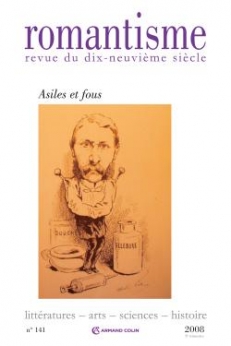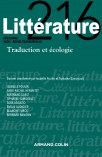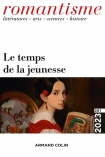
Romantisme n° 141 (3/2008)
Pour acheter ce numéro, contactez-nous
Recevez les numéros de l'année en cours et accédez à l'intégralité des articles en ligne.
Dans les années 1860, la médecine aliéniste et le système asilaire furent violemment pris à partie. À l’asile fermé traditionnel, mouroir sinistre où l’état des patients empirait au lieu de s’améliorer, les réformateurs opposèrent un nouveau modèle : celui de la « colonisation familiale ». Le système belge de la petite ville de Gheel, où les aliénés étaient pris en charge dans des familles sous la supervision d’une équipe médicale et sous la surveillance des autorités administratives, devint alors un symbole « d’anti-asile ». Les patients y étaient libres, ils contribuaient au bien commun : il s’agissait, en somme, d’un système d’intégration et non d’exclusion de la folie. Dans ce combat entre tenants de la doctrine de l’asile et de « l’isolement thérapeutique » et partisans du placement familial, un individu joua un rôle prépondérant : le baron Jaromir von Mundy. Médecin militaire de formation, membre la haute société et polyglotte, Mundy se fit le propagandiste infatigable de la « colonisation familiale », modèle qu’il contribua à faire connaître dans toute l’Europe. Cet article cherchera à comprendre les raisons de cet engagement, et s’attachera ensuite à retracer plus particulièrement l’influence que Mundy eut sur la scène psychiatrique française, éclairant ainsi un épisode méconnu de l’histoire psychiatrique du XIXe siècle.
In the 1860’s, criticism of the traditional medical care of the insane and of the asylum institution grew stronger. Among the alternatives proposed to the closed institutions, “oubliettes” in which those in need of a cure were left to die, the family care system became strongly advocated by reformists. This solution benefited from the model provided by the city of Gheel, a small Flamish town, in which the insane were living among the population, hosted by foster families, under a medical and governmental supervision. There, patients were living among the citizens, showing the efficiency of a logic of integration of madness rather than its exclusion : soon the city of Gheel became a symbol of “anti-asylum”. In the conflict opposing traditionalists, defending the asylum institution and therapeutic constraint, and reformists, believing in “boarding out systems”, the Baron Jaromir von Mundy stands out. This physician of noble ascent became the strongest advocate of the private dwelling system, which he relentlessly and passionately defended across Europe. After trying to shed light on the possible reasons for such a strong commitment to this cause, this essay will show how Mundy particularly affected the debates among the French psychiatrists, thus giving new elements on the history of 19th century psychiatry.

